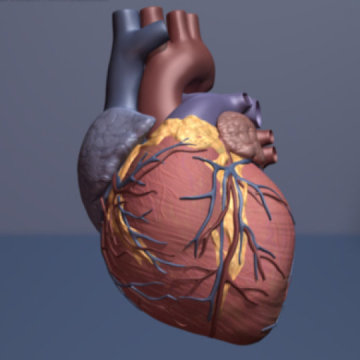A heart failure treatment using umbilical cord-derived stem cells may lead to notable improvements in heart muscle function and quality of life, according to a new study.
“We are encouraged by our findings because they could pave the way to a non-invasive, promising new therapy for a group of patients who face grim odds,” said study corresponding author Fernando Figueroa, M.D., professor of medicine.
In this trial, 30 patients, ages 18 to 75, with stable heart failure receiving optimal drug therapy underwent intravenous infusions with either umbilical cord-derived stem cells or placebo.
Compared to the placebo treatment, the stem cell therapy:
- showed sustained and “significant” improvement in the hearts’ ability to pump blood in the year following treatment;
- resulted in greater improvements on measures of daily functional status and quality of life; and
- was safe with no adverse effects or development of alloantibodies, a common immune complication in patients receiving organ transplants or blood transfusions.
Researchers have previously assessed the potential of bone marrow-derived stem cells as treatment; however, intravenous umbilical cord-derived stem cells have never been evaluated. The latter type has been particularly appealing because they are easily accessible, widely available, unlikely to cause immune complications and free of the ethical concerns that surround embryonic stem cells, the researchers noted.
“Standard drug-based regimens can be suboptimal in controlling heart failure, and patients often have to progress to more invasive therapies such as mechanical ventricular assist devices and heart transplantation,” said lead study author Jorge Bartolucci M.D., a cardiologist.
Heart failure, marked by the heart muscle’s inability to pump blood efficiently, affects some 37 million people worldwide. Despite medical advances, half of patients diagnosed with heart failure will die within five years of diagnosis, according to Figueroa. If affirmed in larger studies, these findings could provide a promising new treatment option for a condition that currently has few, according to Science daily.
N.H.Kh

